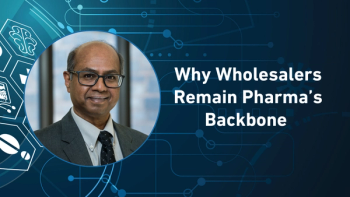
- Pharmaceutical Commerce - July/August 2017
Artificial intelligence’s value in influencing treatment decisions
As political ambiguity shrouds
the healthcare ecosystem, pharmaceutical organizations find themselves in the unique position of balancing volume and value. The era of massive blockbuster drugs has now faded away and most pharma companies are endeavoring to engage smaller pools of high-value patients. This shift comes at a time when the healthcare industry has begun a steady transition to value-based care. The pursuit of better outcomes at lower costs implies the need for certain efficiencies in the care delivery system: where unnecessary tests and trial-and-error treatments are reduced to a minimum, if not eliminated. Enter precision medicine, with companies like Prognos utilizing specific lab test results to more effectively identify and help treat patients at the earliest opportunity.
Pharma has traditionally focused on large-volume patient pools with chronic conditions as a focal point for many of their programs. Pivoting to diverse initiatives focused on rare and niche diseases requires a different approach. Patients with these diseases have an atypical patient journey, which starts with symptoms and, in many cases, biomarker testing to determine a correct diagnosis and subsequent treatment regimen.
In the aftermath of the Affordable Care Act, a larger portion of household budgets now goes toward healthcare-related expenses. Growing premiums, higher deductibles and skyrocketing care costs cause consumers to take a more active part in their treatment decisions. These decisions, such as testing regimens, treatments and ongoing adherence, have traditionally been unilaterally made by medical professionals. This phenomenon is referred to as “patient as payer,” implying that the patient is making the ultimate treatment decision, not the physician or the insurance company.
This trend doesn’t eliminate the need for a competent physician. Providers are encouraged to become highly attuned to the specific needs of individual patients as the value-based care payment model ties their incomes directly to patient outcomes. Physicians are incentivized to help patients get tested appropriately for both new conditions and ongoing treatment regimens. A key success factor in the new outcomes-based world is the timeliness of diagnosis, particularly in the case of malignancies or rare diseases that may go unidentified for years.
Many drug brands have recognized this shift and are adapting their business models to suit the new environment. An average company’s focus on understanding the complete patient journey has evolved to entertain pre-symptomatic, symptomatic and diagnosis stages, as well as post-treatment issues like persistence and compliance. This expanded focus requires a deep understanding of both testing patterns and diagnosis decisions in early stages, as well as monitoring biomarkers and access to medicines in later stages. Biomarker test results are among a group of triggers for determining a treatment regimen early in a patient’s journey, and biomarker monitoring can help identify patients who are not getting optimal care and aid them in selecting the next line of therapy.
Right information at the right time
This more comprehensive approach to the patient presents a perfect opportunity for pharmaceutical organizations to proactively educate healthcare professionals on the benefits of their therapies at the right time: either earlier in the process before a patient receives a first-line therapy or when a first-line therapy fails to meet the patient’s need and a subsequent second-line therapy is evaluated.
At Prognos, for example, we have partnered with more than 200 labs to build the largest repository of diagnostics results. These results are captured in real-time: we receive them at the same time that the ordering physician does. The timing and periodicity of these data empower brands to engage healthcare professionals before treatment decisions are made, so that physicians are armed with the best knowledge to prescribe. We leverage healthcare AI, which uses techniques like machine learning and natural language processing on reams of clinical diagnostic data to determine specific and complex patient journeys. AI empowers us to “see” what patient trajectories look like and compare them to historical data to predict where these patients are in their disease progression.
The result of these technological advances enables pharmaceutical firms to find providers with patients who may benefit from a specific therapy or need an alternative or additional therapy earlier in the care process—before treatment decisions are made. Earlier diagnosis and treatment, in many cases, prolong life and improve outcomes for patients. We believe that early identification holds the potential to flatten the disease curve and decrease other unnecessary spending as a result of misdiagnosis or treatment. This is an exciting opportunity to be a part of the rapidly changing healthcare environment and to help pharma brands eradicate disease.
Save
Articles in this issue
over 8 years ago
Pharmaceutical traceability stumbles aheadover 8 years ago
Managing employee training at the enterprise levelover 8 years ago
Digital factory transformation beyond serialization complianceover 8 years ago
Blockchain: the technology to make DSCSA work after 2023?over 8 years ago
Besse Medical acquires Podisover 8 years ago
DHL opens a cold-chain center of excellence in Irelandover 8 years ago
Construction starts on a Pfizer biopharma plant near St. Louisover 8 years ago
Looking ahead in life sciences and healthcare logisticsover 8 years ago
Pharma’s cold chain is going below zeroNewsletter
Stay ahead in the life sciences industry with Pharmaceutical Commerce, the latest news, trends, and strategies in drug distribution, commercialization, and market access.



